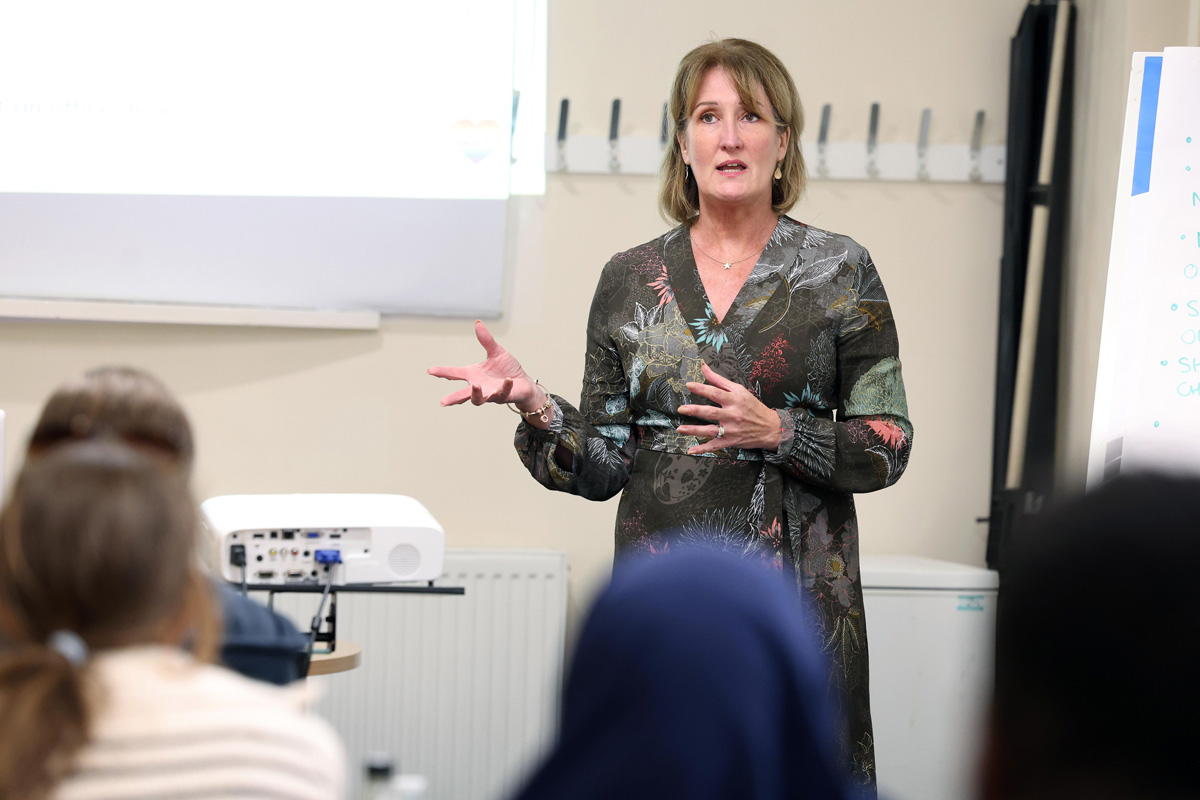Don’t Defund BTECs, Education Committee tells Government

The Education Committee has today written to the Education Secretary and the Minister for Skills urging them not to withdraw funding from post-16 Applied General Qualifications, including BTECs and Tech level qualifications.
It follows the cross-party Committee’s evidence session on 3 December, in which further education experts and workforce representatives spoke of their concerns.
The Government has said it will make its decision on whether to cut funding for AGQs, a policy of the previous government, following the completion of ‘a short review’ – due before the end of the year.
Witnesses in yesterday’s session told the Committee that although for some students T-levels are a highly successful option, without the option of AGQs, young people could be left without suitable options to gain qualifications for their future careers or progress to higher education. MPs were also told that questions over funding have left colleges in an uncertain position on whether they can continue offering AGQs in the coming years, causing anxiety for young people making decisions about their future education.
Education Committee Chair Helen Hayes said:
“Technical qualifications are essential to the economy and young people’s life chances. We heard that the previous government’s attempts to mend the patchwork of post-16 qualifications could lead to bigger holes and frayed confidence in our system. We hope ministers will listen to the evidence and retain popular, high quality AGQ and BTEC qualifications which provide vital routes to success for many young people alongside A Levels and T Levels.”
Dear Ministers,
Re: Review of post-16 qualification reforms at level 3 and below
We welcome the Government’s decision to review post-16 qualification reforms and to
pause the planned removal of funding from qualifications deemed to overlap with T
Levels launched in waves one and two.
In order to better understand the impact of the review on students, teachers and
further education providers the Education Select Committee took evidence on Tuesday
3 December 2024 from: Ruth Perry, Natspec; James Kewin, Sixth Form Colleges
Association; Catherine Sezen, Association of Colleges; Simon Cook, Principal of MidKent
College, FE representative on ASCL Council; Alice Gardner, Edge Foundation; David
Robinson, Education Policy Institute; and Jenifer Burden, Gatsby Charitable Foundation.
We urge the Government to review this evidence and to take account of our initial
views on this issue which are set out in this letter.
We were told that the Government’s review has caused great uncertainty. It is
concerning to the sector that the terms of reference for the review have not been
published, and that there has not been a full and open consultation process. Further
education providers are currently unsure which qualifications they can offer in the
coming years and students are faced with a narrowing range of qualification options at
the age of 16 and uncertainty about which qualifications best serve their needs. We
were also told about the anxiety some students have about the possibility the
qualification they wish to pursue is defunded but their second-choice option is at full
capacity and therefore unavailable to them. The Government must urgently clarify
which level 3 qualifications will be available until at least 2027 in order to provide the
sector with certainty and stability.
We know that for some students T Levels are a highly successful option, and that it will
take time for the full benefits of this qualification to be realised. We also heard about,
and are supportive of, the need to move towards parity of esteem for technical routes
of education. We are, however, concerned about the high drop-out rate for T Levels
due, in part, to their size, scope and method of assessment, and some of our witnesses
told us that transition courses are not working well.
It is clear that if post-16 education only offered A Levels or T Levels there would not be
a sufficient and appropriate range of options for students with different abilities and
prior attainment. Our view, therefore, is that students should not be faced with the
binary choice of A Levels or T Levels. Alternative forms of level 3 qualifications,
including Applied General qualifications and Tech Level qualifications, must remain a
long-term option, to enable students who either do not wish to, or are not able to,
study A Levels or T Levels to continue their education at level 3. It is clear that some
students benefit from being able to mix and match A Levels and AGQs or Tech Level
qualifications. We heard compelling evidence of the importance of the availability of
these qualifications in providing much needed flexibility and accessibility for all
students, particularly those with special educational needs and/or disabilities and those
from disadvantaged backgrounds. We also know that AGQs provide a very important
route to higher education for some students from disadvantaged backgrounds.
Removing these qualifications could potentially exclude some of these students from
accessing and pursuing higher education. Further, we believe that this could act in
direct contradiction of the Government’s wider focus on inclusion within the education
system, including with the Curriculum and Assessment Review.
That is not to say that some level 3 qualifications may not benefit from reform, whether
through rationalisation or updated content. However, the process for any reform must
be clear and transparent and, as a matter of urgency, schools and colleges must be
given certainty about both the immediate and long-term future of level 3 qualifications
up to and beyond 2027 and the broader landscape.
Our witnesses told us about a number of other significant challenges for further
education providers, both mainstream and specialist, including the need for a strong
vision and strategy from the Government which delivers parity of esteem for vocational
education pathways and quality assurance for all types of qualification. The Education
Select Committee will continue to take a close interest in further education and skills,
and we look forward to discussing these issues with both of you in due course.
Yours sincerely,
Helen Hayes MP Chair, Education Committee











Responses